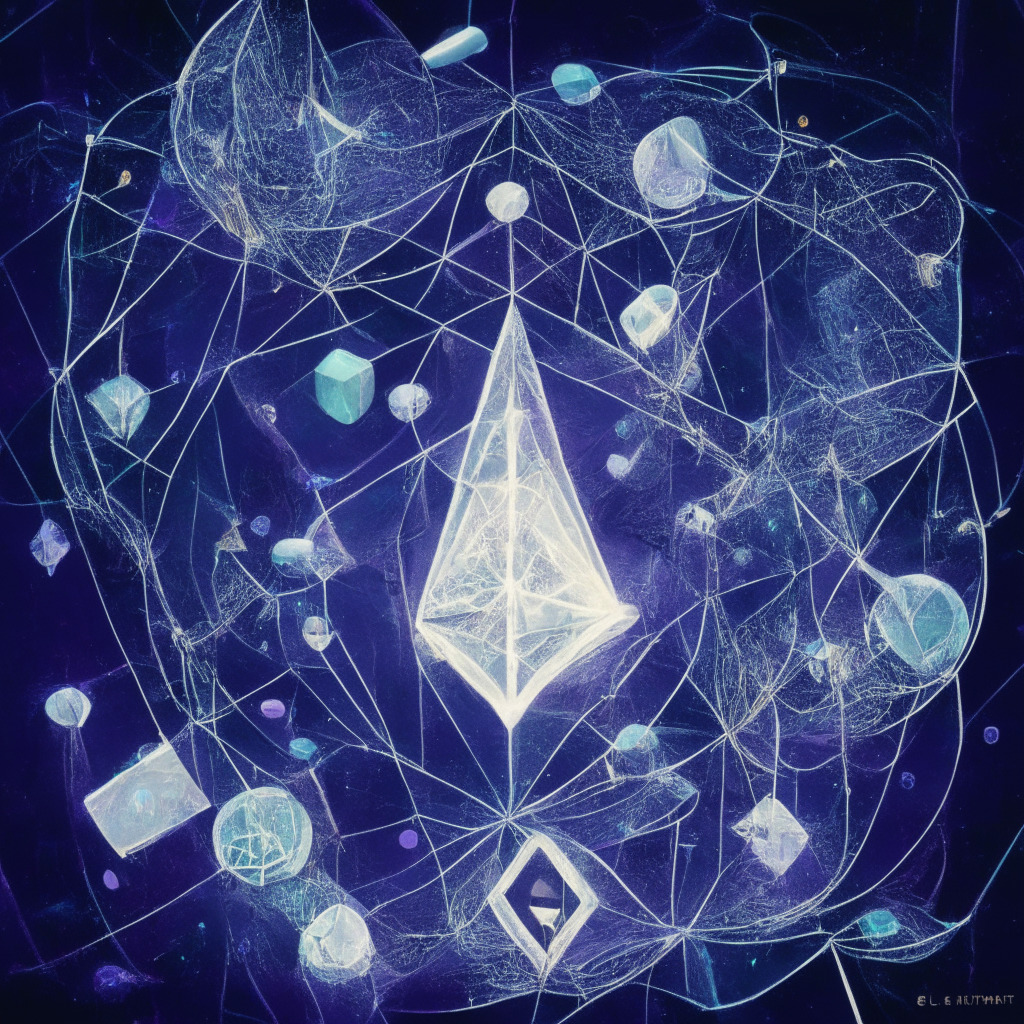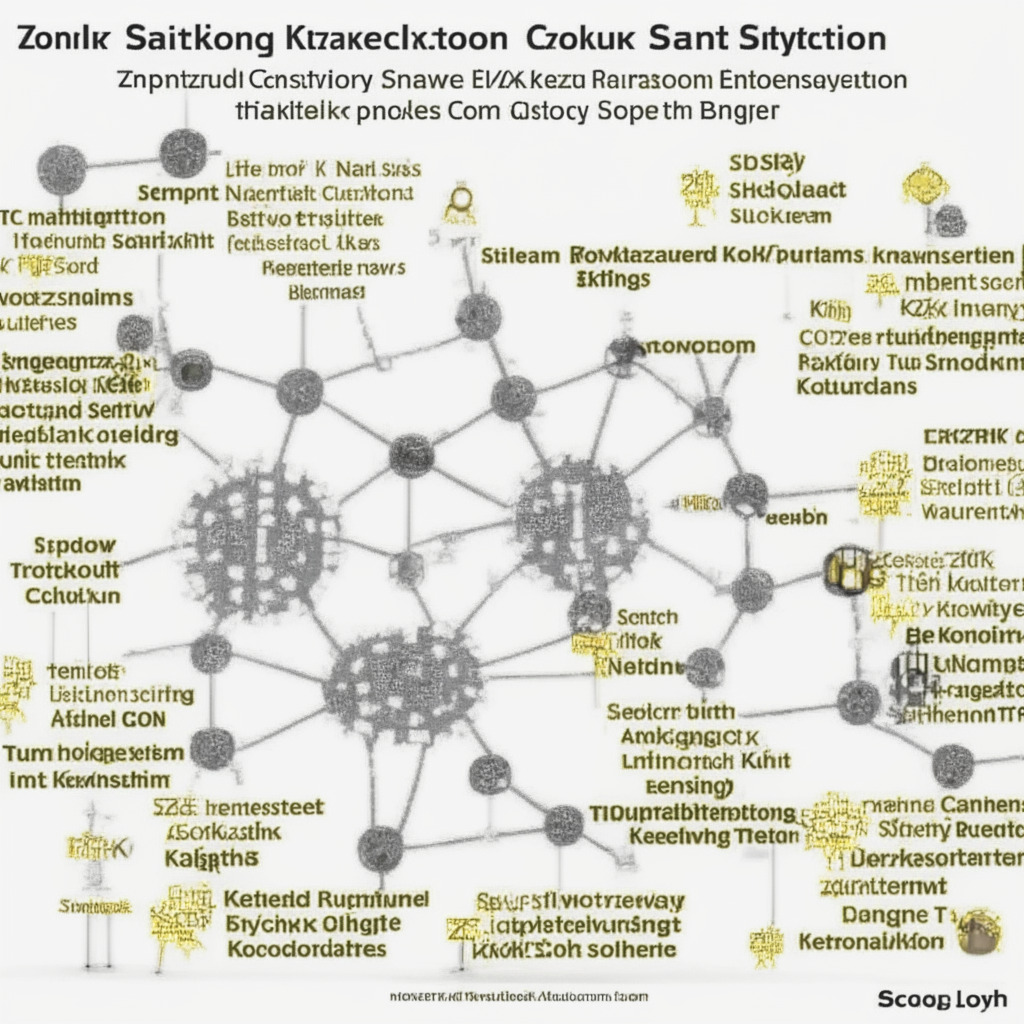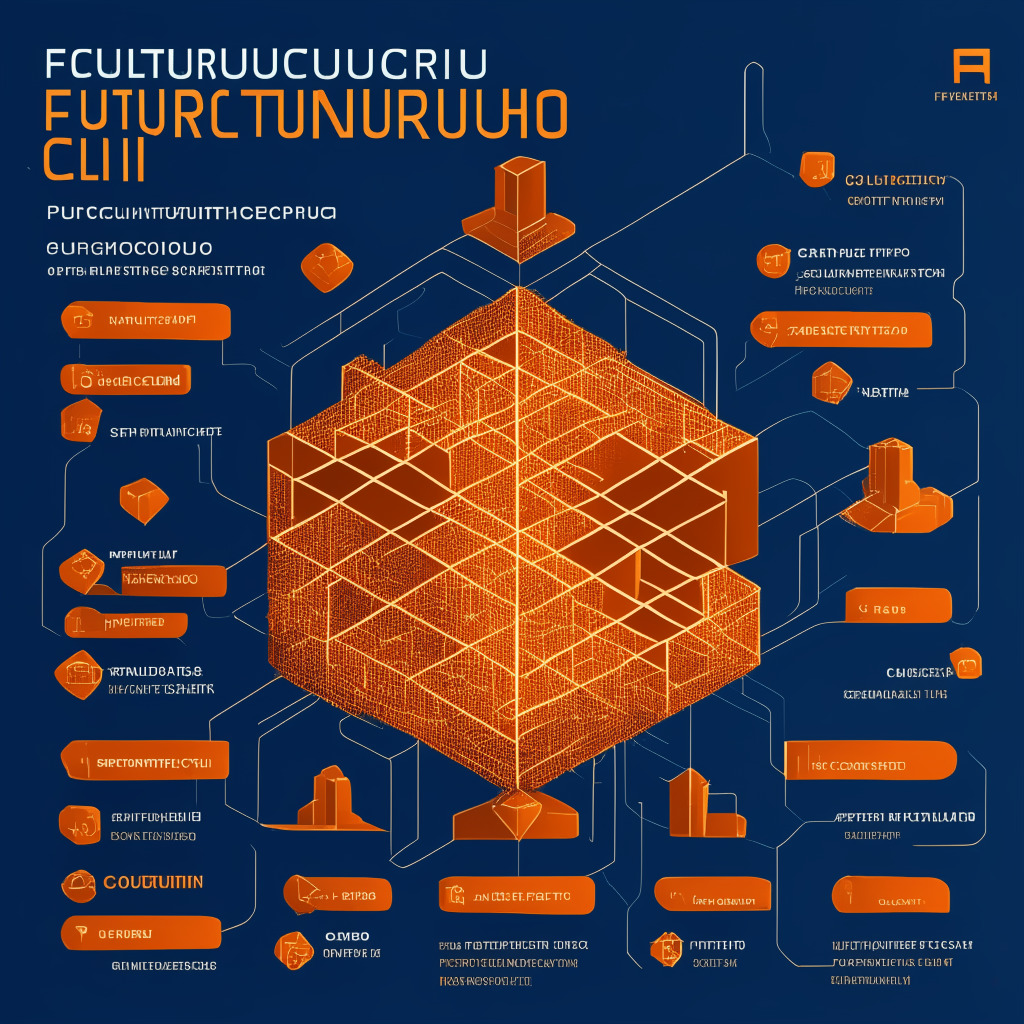“StarkWare and Herodotus have launched proprietary technology enabling users to verify data from any point in Ethereum’s blockchain history. This new technology, using on-chain accumulator and STARK proving technology, enhances blockchain access, speeds up data verification and could revolutionize Ethereum-based applications and services.”
Search Results for: Starkware
Blockchain Upgrades: StarkWare Quantum Leap’s Fallout and Fascination
“StarkWare, the firm behind Ethereum scaling solution Starknet, recently announced its decision to release an estimated $550,000 worth of cryptocurrency caught in a system upgrade. This highlights the complexity and potential vulnerability within the swift progress and innovation of the blockchain ecosystem.”
StarkWare’s Starknet Blockchain Upgrade: The Technological Paradox in Crypto Sphere
StarkWare, the force behind Starknet blockchain, plans to restore accessibility of digital currency for users, following outcry over wallets turning empty after a major tech upgrade. Those who didn’t timely upgrade their Argent or Braavos wallets experienced the issue. Starkware underlined paradoxes of tech advancements in the crypto sphere, balancing benefits against potential user frustrations.
Decentralized Exchange Brine Fi Secures $16.5M Amid Market Slump: A Game Changer or Mirage?
“Decentralized exchange Brine Fi has secured a $16.5 million investment led by Pantera Capital, despite the recent dip in venture capital for digital assets. Based on Ethereum scaling system StarkWare, Brine Fi offers a non-custodial, decentralized orderbook with privacy for trading positions. Pantera Capital praises its potential for mainstream and institutional adoption in DeFi.”
Unveiling Polygon’s Open Source Developer Stack: Scalability Promise vs. Skepticism
Polygon’s new open-source sidechain developer stack is set to power Layer 2 solutions on Ethereum, backing its commitment to the evolution of the Ethereum ecosystem. Key to this advancement is the integration of zero-knowledge proof technology, considered critical for the scaling of the Ethereum blockchain. However, critics raise concerns about potential inefficiencies and differing architecture.
Polygon’s Ambitious Leap: Is The Cryptoworld Ready for the ZK-Powered Value Layer?
Ethereum scaling firm Polygon has unveiled a toolkit for blockchain developers to create customized Layer 2 chains with zero-knowledge (ZK) proofs. This opens up potentials for evolving ‘Supernets’ using the firm’s ZK technology, aiming to build the “Value Layer of the internet”.
Matter Labs vs Polygon: Open-Source Code Controversy Shakes Ethereum’s Layer 2 Community
Polygon has accused Matter Labs of using their open-source code without proper attribution in developing its zkSync rollup. This allegedly violates the open-source ethos, which forms a fundamental aspect of blockchain projects, thereby fostering discord in the ecosystem.
A Look into the Future: AI and Blockchain Synergies at EthCC Paris Conference
The Ethereum-focused conference EthCC witnessed buzz due to potential shift in the crypto market and the confluence of AI with blockchain technology. Future prospects of AI in crypto financial markets and valuating non-fungible tokens were discussed. Skepticism around use-cases and computational demands of AI and blockchain intersection remain.
Unveiling Paradex: Paradigm’s Hybrid Leap Merging DeFi and CeFi in Crypto Landscape
“Paradigm extends its services to decentralized finance (DeFi) through Paradex, a decentralized perpetuals platform. This hybrid derivatives exchange integrates liquidity and efficiency of centralized finance with transparency, self-custody, and trustlessness inherent to DeFi. Paradigm’s DeFi-CeFi fusion presents a new investment avenue.”
Merging AI and Zero Knowledge Proofs: Skyrocketing Blockchain’s Future or a Risky Endeavor?
“Blockchain technology combines with zero-knowledge proofs (ZK-proofs) and AI for improved smart contract solutions. Despite challenges, experts remain optimistic about its future. Integration of ZK-proof with AI hints at a transformative occurrence that continues shaping blockchain’s promising future.”
Revolutionizing Blockchain: Starknet’s Leap into Appchains for Enhanced UX and Functionality
“The Ethereum layer-2 network, Starknet, has announced its venture into software tools dubbed “Starknet Stacks” for developing personalized layer-2 chains, paving the way for application-specific “appchains”. The move presents opportunities for wider, interoperable blockchain ecosystems, better user interfaces, and increased transaction throughput.”
Ethereum Scaling Solution StarkNet’s Quantum Leap: Spectacular Throughput Enhancement and Its Implications
StarkNet, Ethereum’s scaling solution, test launched StarkNet Quantum Leap, a layer-2 network aiming at performance enhancement and throughput improvement. With throughput increased tenfold, this upgrade could quicken transaction processing significantly. Despite often compromising a network’s decentralization, this high throughput is critical for user-friendly, decentralized finance applications. StarkNet’s new upgrade also plans to substitute the “PENDING” transaction status with “ACCEPTED_ON_L2”.
Volition: The Breakthrough Set to Slash Ethereum Fees and Unlock Micropayments
StarkWare’s innovative product, Volition, aims to drastically reduce Ethereum transaction fees, enabling micropayments comparable to Bitcoin’s Lightning Network. Set to launch with Starknet v0.13.0, Volition promises to provide users more control over transactions and foster wider crypto adoption, particularly in developing economies.
Kakarot Testnet: A Game Changer for Starknet and Ethereum EVM Compatibility?
Starknet’s upcoming Kakarot testnet, launching in August, aims to achieve Ethereum Virtual Machine (EVM) compatibility for the layer-2 scaling solution. Backed by prominent figures like Vitalik Buterin, this development seeks to remove hurdles for developers and improve rollup performance in the Ethereum ecosystem.
Former Meta Exec Leads Starknet Foundation: Decrypting Decentralization Pros and Cons
The Starknet Foundation recently appointed former Meta executive Diego Oliva as its inaugural CEO, marking a significant milestone. Tasked with driving ecosystem growth and decentralization efforts, Oliva, who has a diverse background, will lead the foundation, which now boasts a seven-person board and a reserve of 5.01 billion tokens.
Teleporting Assets: Storage Proofs Revolutionize Cross-Chain Transfers and Security
Storage proofs, a cryptographic method aiming to revolutionize cross-chain asset transfers, may provide a more secure alternative to vulnerable bridges in the growing blockchain ecosystem. Starknet plans to be the first network to natively integrate storage proofs, potentially eliminating intermediary third-party “oracles,” offering enhanced security and user experience for asset transfers.
Ethereum’s Three Transitions: Tackling the Blockchain Trilemma for a Brighter Future
Ethereum’s co-founder, Vitalik Buterin, emphasizes the need for addressing “The Three Transitions” – L2 scaling solutions, smart contract wallets, and enhanced privacy, to ensure Ethereum’s growth and future success. Overcoming the “blockchain trilemma” is crucial in maintaining user confidence, trust, and fostering mass adoption.
Starknet: Decoding the Scalability Revolution in Ethereum’s DeFi Space
Starknet, an open-source framework by StarkWare, aims to bring scalability and privacy to Ethereum-based dApps. Its total value locked has reached an all-time high of $10.49 million, with layer-2 scaling technique zero-knowledge rollups and Rust-inspired programming language Cairo fueling its growth.
First eAUD Foreign Exchange Transaction: Future of CBDCs and Pros-Cons Debate
Australia successfully completed its first foreign exchange transaction using eAUD, marking a milestone in the country’s central bank digital currency (CBDC) development. The eAUD transaction showcased quicker settlement and potential benefits over traditional FX, remittance networks, and fiat currencies. The ongoing pilot explores various eAUD use-cases, driving the world closer to CBDC integration in financial systems.
Scaling Bitcoin With zk-Proofs: A Solution to Network Congestion and Transaction Fees?
The Bitcoin network faces congestion and increased transaction fees due to the demand for BRC-20 tokens. Zero-knowledge proofs (zk-proofs) may help address these issues by enhancing privacy, security, and blockchain capacity. Projects such as ZeroSync are exploring solutions like zkCoins to increase transaction throughput and improve network scalability.
StarkNet 2023 Roadmap: Aiming for the Stars or Overshooting the Moon? An In-Depth Look at Performance Goals & Potential Pitfalls
StarkNet’s ambitious roadmap for 2023 has generated both excitement and skepticism within the crypto community, […]
Layer-2 Blockchain Revolution: Unveiling Starknet’s 2023 Roadmap, Throughput, and Scalability
As layer-2 blockchain protocols gain momentum in 2023, Starknet’s ambitious roadmap plans to help the […]





















